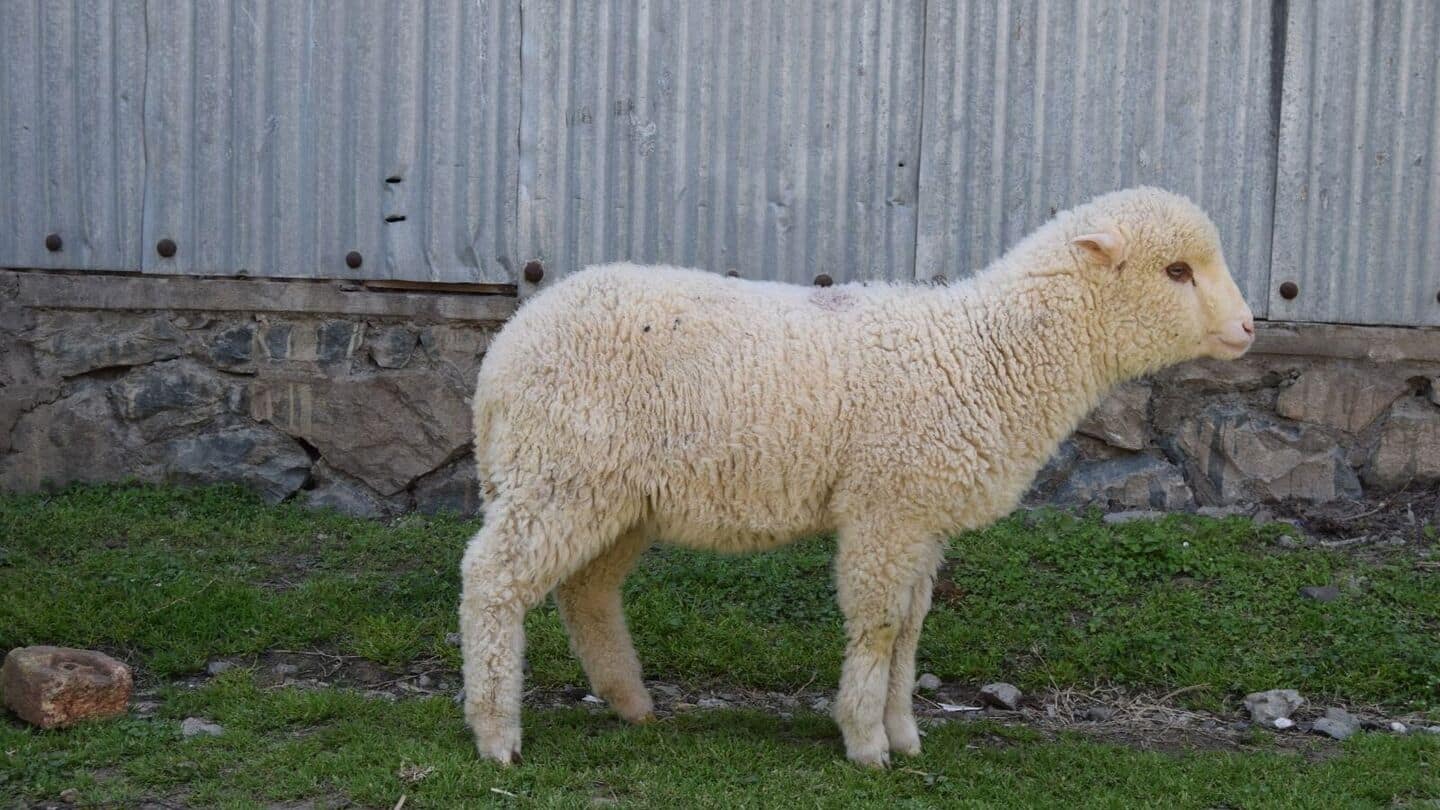
India's 1st gene-edited sheep created using CRISPR in Kashmir
What's the story
In a groundbreaking achievement, researchers at Sher-e-Kashmir University of Agricultural Sciences and Technology (SKUAST) in Srinagar have successfully created India's first gene-edited sheep. The project took four years of research and is expected to increase the muscle mass of the animal by 30%. The gene editing was done using CRISPR-Cas9 technology, a Nobel Prize-winning method from 2020.
Technological advancement
Gene editing and its potential applications
Professor Riaz Ahmad Shah, who led the research team, said that this technique can be used to create disease-resistant animals by editing disease-causing genes. It could also enable animal twinning at birth. The muscle mass of the sheep was increased by disrupting its myostatin gene, which controls muscle growth in sheep.
Livestock innovation
A new era in livestock genetics
Dr. Nazir Ahmad Ganai, Vice Chancellor of SKUAST-Kashmir, hailed this achievement as the dawn of a new era in livestock genetics in India. He emphasized that gene editing allows for precise and beneficial changes without introducing foreign DNA into the organism. This makes the process efficient and safe, possibly acceptable to both regulators and consumers alike. The project was funded by the Indian Council of Agricultural Research (ICAR).
Verification process
Gene-edited sheep's DNA to be verified by foreign labs
The DNA of the three-month-old gene-edited lamb will be sent to foreign research laboratories for further verification. This is part of the broader vision of SKUAST-Kashmir to set up India's most advanced reproductive biotechnology facility, blending cutting-edge research with practical applications in agriculture and animal husbandry. The university is committed to innovation, scientific excellence, and nation-building through biotechnology.